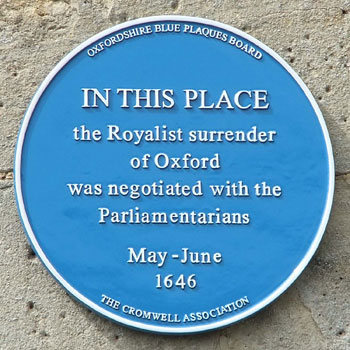Information provided by the OLHA (www.olha.org.uk)
6th – Henley – Hazel Williams “Gatehampton Roman Villa”. Kings Arms Barns, Market Place, 7:45pm.
6th – Hook Norton – Brian Rider “The Battle of Edgehill”. Baptist Church Hall, Netting Street, 7:30pm.
8th – Banbury – Stephen Johnson “Henry Moseley: from Oxford to Gallipoli”. Banbury Museum, Spiceball Park Road, 7:30pm.
8th – Didcot – Madeleine Loynes “Didcot Power Station”. Northbourne Centre, Church Street, 7:30pm.
8th – Wootton & Dry Sandford – Liz Woolley “The Coming of the Railway to Oxford”. Community Centre, Lamborough Hill, Wootton, 7.30pm.
9th – Charlbury – Bill King and Helen Bessemer-Clark “Dad’s Underground Army – British Resistance in WWII”. Memorial Hall, Browns Lane, 8:00pm.
12th – Chipping Norton – Members’ social evening with supper. Methodist Church, West Street, 7:30pm.
12th – Goring & Streatley – Sue Milton “Swan Upping”. Goring Village Hall, 2:30pm.
12th – Radley – Richard Dudding “Deserted Settlements of Radley”. School Hall, 7:30pm.
13th – Marcham – John Leighfield “Putting Marcham on the Map: from Gough to Google”. Marcham Church, 7:45pm.
15th – Abingdon – Geoffrey Tyack “Revising Pevsner: a New Edition of The Buildings of England: Berkshire”. Northcourt Centre, Northcourt Road, 7:45 pm.
15th– Eynsham – Mark Davies “Lewis Caroll and the Pre-Raphaelites”. Church Hall, Thames Street, 7:30pm.
15th– Wychwoods – John Leighfield “Putting the Wychwoods on the Map”. Milton-under-Wychwood Village Hall, 7:30pm.
16th – Finstock – “The History of Finstock and Fawler”. Village Hall, 8:00 pm.
19th – Adderbury – Stephen Barker “Oxfordshire on the Home Front”. Methodist Chapel, Chapel Lane, 7:30pm.
19th – Kennington – Richard O Smith “Britain’s Most Eccentric Sports”. Methodist Church, Upper Road, 7:45pm.
20th – Enstone – Jo Eames “General Hobart – WW2 Designer of Special Tanks Important to the Success of D-Day”. Venue tbc (contact 01608 677246, carolawt@gmail.com), 7:30pm.
21st – Bloxham – Anthony Poulton-Smith “Oxfordshire Place Names”. Jubilee Hall, off Brickle Lane, 7:30pm.
26th – Oxfordshire Family History Society – Liz Woolley “The Parish of St Thomas the Martyr, West Oxford”. Exeter Hall, Oxford Road, Kidlington, 8:00pm.
27th – Hanney – Simon Wenham “The History of Salter’s Steamers”. War Memorial Hall, East Hanney, 8:00pm.
27th – Kidlington – Jill Saint “Miss Read Remembered by her Daughter”. St John Ambulance Hall, High Street, 7:50pm.
27th – Sutton Courtenay – Bill King “The Roman Invasions.” Village Hall, 7:30pm.
28th – Dorchester – Margot Metcalfe “Poverty in Dorchester-on-Thames”. Followed by AGM. Village Hall, 7:30pm.
29th – Aston – A Musical Evening. Group Supper and Social with The Three Pressed Men. Fellowship Centre, Cote Road, 7:30pm.

